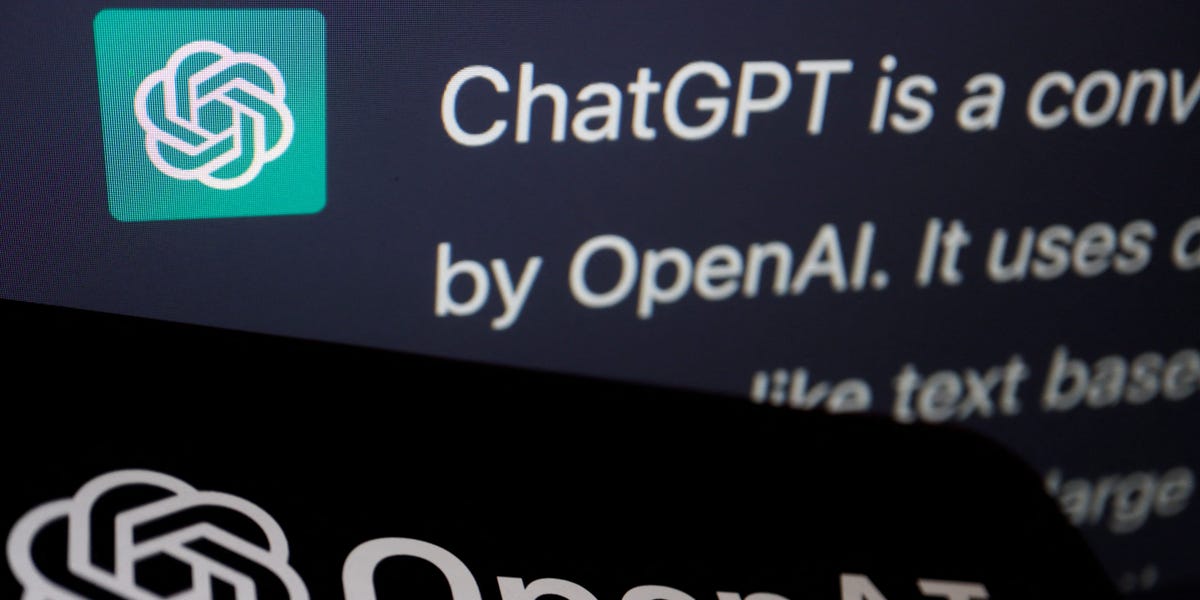Kruze, a financial consulting firm that provides accounting services to early-stage, VC-backed companies, says that more than 65% of the 800 startups on it its platform pay for OpenAI’s ChapGPT. This is up significantly since December of 2022, when 3% of Kruze’s startups paid for the then-newly released chatbot.
Kruze Consulting
Healy Jones, who heads up financial strategy at Kruze, explained that he’s been tracking OpenAI usage among Kruze’s startup client base all the way back to January 2021, well before ChatGPT officially launched and took the tech world by storm.
Back then, OpenAI had an API service that one to three percent of his clients were using, Jones told Insider in an interview. But after the AI company launched ChatGPT in late 2022, the “lid really got blown off,” he said.
“In early 2023, that’s when it started to become a line item on enough clients’ income statements,” he said.
OpenAI currently offers free and paid versions of ChatGPT. The free option is a text-based chatbot running the earlier GPT-3.5. For $20 per month, however, ChatGPT Plus gives users access to the more powerful GPT-4, a multi-modal language model that gives more accurate responses to queries in addition to analyzing image and voice data alongside text.
GPT Plus also uses DALL-E3 to generate AI images, can search the web to provide more up-to-date information, and is faster than the free version.
While society more broadly is clamoring for ChatGPT Plus — OpenAI had to pause sign ups late last year, prompting some users to list their subscriptions for sale on eBay — startup workers, specifically engineers, are adopting the tech to increase productivity and do more with less.
At fintech unicorn CloudWalk, which is building a payments network, a few engineers started using ChatGPT Plus on their own and praising the application on company Slack channels.
When CEO and founder Luis Silva saw the messages, he started thinking about how the generative AI platform could improve CloudWalk’s customer support system — and promptly purchased an enterprise account granting access to ChatGPT Plus to CloudWalk’s 500-plus employees.
Launched in August 2023, ChatGPT Enterprise offers a bespoke version of the chatbot to large companies. Early adopters include Block, Canva, Carlyle, The Estée Lauder Companies, PwC, and Zapier, according to OpenAI’s website. Its price is not listed online and is likely variable to an organization’s size and specific needs.
“ChatGPT has improved a lot of our writing, and how we develop ideas and create,” Silva, who is based in Brazil, told Business Insider. “We’re not asking the GPT to generate all of this stuff, but we’re co-creating with ChatGPT. We saw these improvements and efficiencies in terms of customer experience flow.”
Silva added that CloudWalk has been able to stay lean and still increase output thanks to AI.
“We’re serving hundreds of millions of customers worldwide with just hundreds of people, and other companies are doing so as well,” he said. “Using these tools is really big. It’s one of the biggest revolutions we’re seeing since the Industrial Revolution.”
Indeed, the growing adoption of ChatGPT is creating demand for engineers who are especially savvy at using generative AI to get work done more quickly. Some of these so-cold “prompt engineers” come from outside of a tradition computer science background — think lawyers or marking professionals — and command $300,000 salaries.
At Kruze, Jones says that most of the startups on the platform that pay for ChatGPT do so through the $20 per month Plus subscription, and far fewer are making big investments into custom APIs, which let them integrate ChatGPT capabilities into their own products.
Fewer still are paying for OpenAI’s newly launched enterprise program, although unlike CloudWalk — which has shelled out for an enterprise account and raised a big Series C funding round back in 2021 — most startups on Kruze’s platform are pre-seed through Series B-sized and are likely too small to benefit form a big enterprise subscription, Jones explained.
While ChatGPT is currently the frontrunner in terms of bringing generative AI into the workplace, Jones said he’s eying other products, including LLM-builder Anthropic and software-developer GitHub, to see if they take off in terms of startup spend.
For adtech startup Aditude, the latter, GitHub Copilot, has provided the best of both worlds. The company’s founder and CEO Jared Siegal explained that after a junior engineer came to him last year with a tool that helped them “code at a crazy speed,” he got on board and soon expanded access to his whole company, which, at the time was only nine day-to-day employees.
“Copilot is a bit easier to leverage because you install it, pay for it in GitHub, and then it allows you to code at a really fast speed,” Siegal told Business Insider in an interview. “You have to know what you’re doing and be really careful, but it can code upwards of a thousands lines a minute.”
The engineer has since been promoted to a senior position, and for a scrappy, early-stage startup like Aditude — which was self funded from its conception in 2019 until the middle of 2023 — using generative AI though Copilot to help engineers code faster played an integral role in leveling up.
“The feedback we got, which is indirectly related to our using AI, is that investors didn’t understand how our team has so many clients and has built so much,” Siegal said.
Axel Springer, Business Insider’s parent company, has a global deal to allow OpenAI to train its models on its media brands’ reporting.




